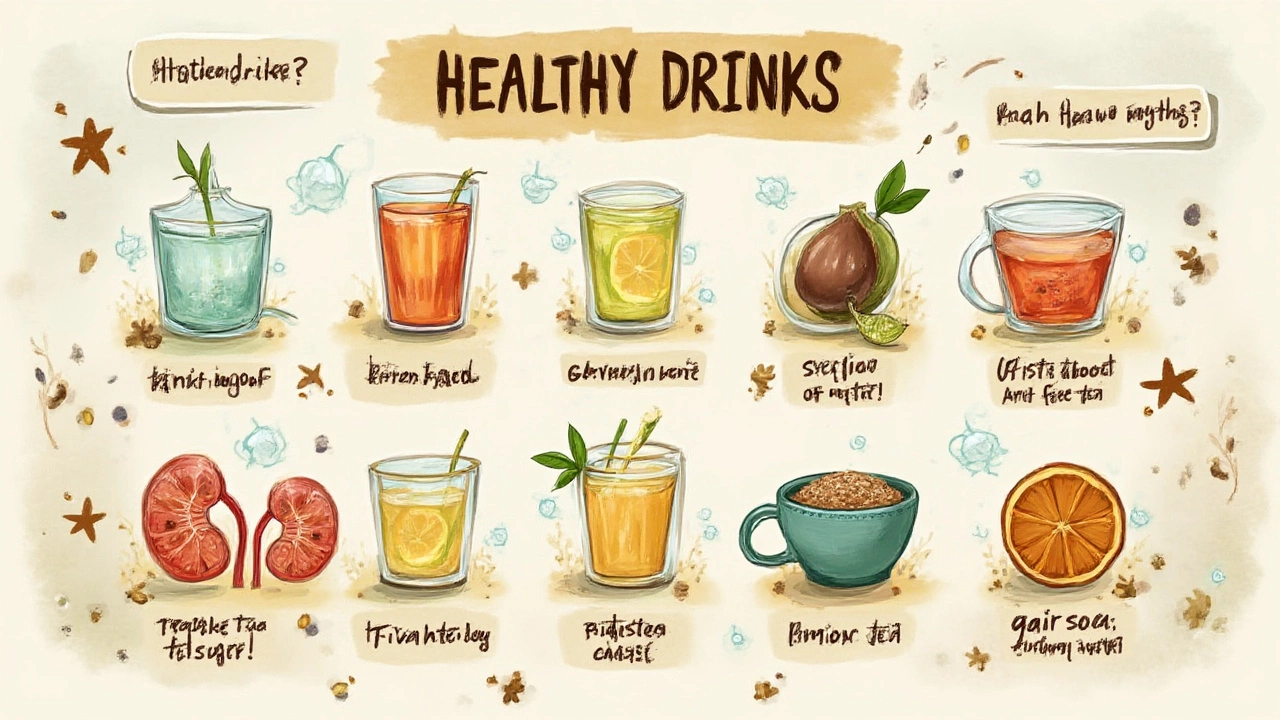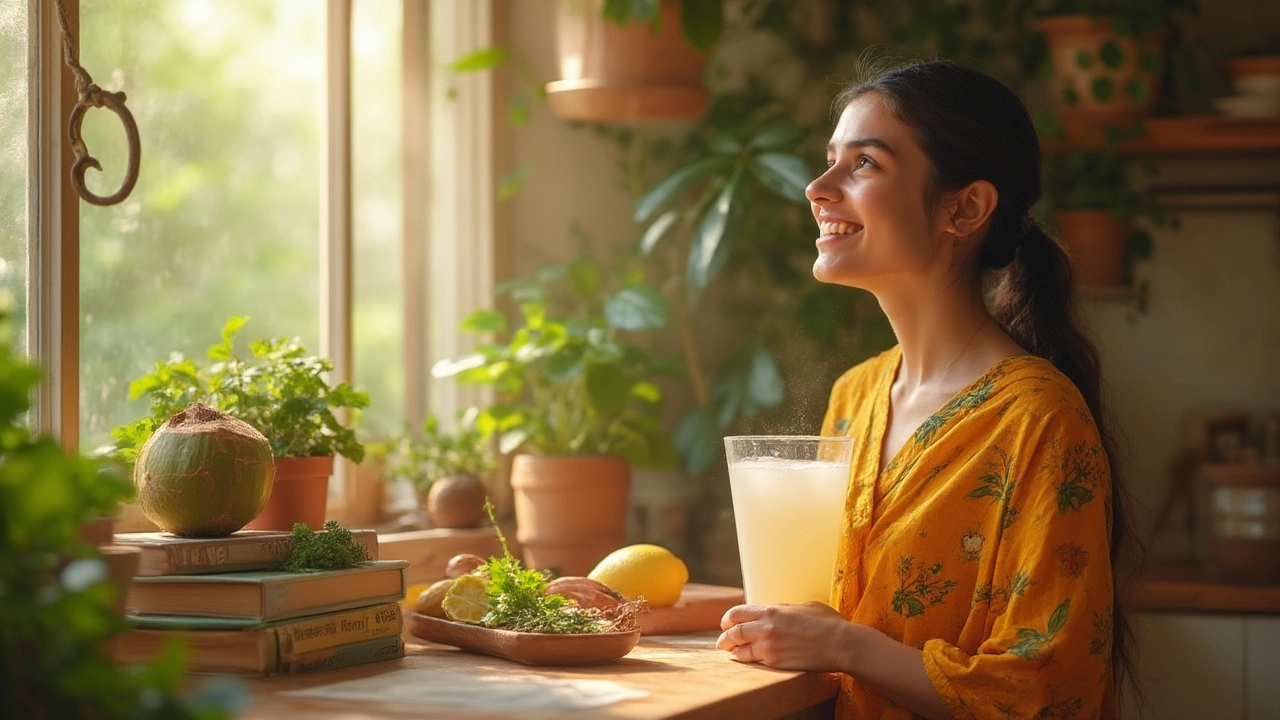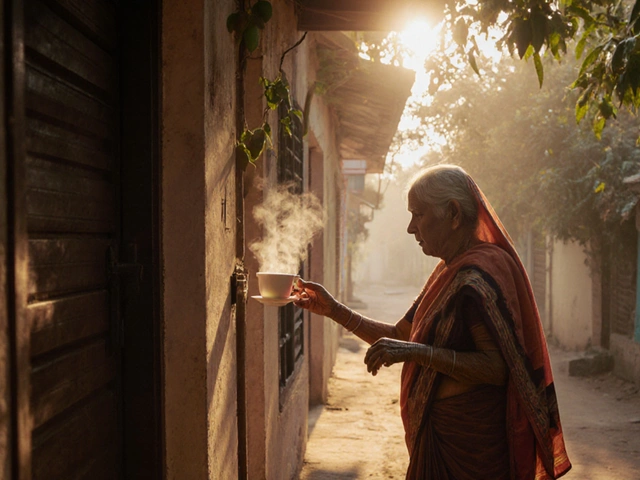Ask any doctor what makes our bodies tick, and you’ll hear about the kidneys before you can finish your coffee. These two bean-shaped organs are the unsung heroes, filtering toxins, balancing fluids, and helping keep your blood pressure on the straight and narrow. But when things go sideways and your kidneys start to struggle, what you sip suddenly matters a lot more than you think. People go searching for miracle cures—teas, tonics, juices—but what actually works? It surprises most folks that the best drink for kidney function might already be in their fridge.
How Your Kidneys Work and Why They Need Extra Love
If you’ve ever eaten a pizza and knocked back a soda, then worried about "toxins," your kidneys probably laughed quietly and got to work. Every day, they filter about 150 quarts of blood to sift out waste, which dribbles out as urine. That’s not all: kidneys balance electrolytes, trigger the production of red blood cells, and keep your bones steady. All that busywork means they can get tired, especially if you make them work overtime—think too much salt, not enough water, or hitting the painkillers too hard.
But when you actually start losing kidney function—measured by that mysterious eGFR number on your blood test—things change. You might not feel a thing until your kidneys are almost tapped out. That’s why experts say prevention is king! Whether you’re healthy or already got some "kidney numbers" in the lab, what you drink isn’t just about thirst. True, dehydration is like kryptonite for kidneys, but overdoing certain drinks (like those "detox teas") can backfire too.
Shocking fact? Chronic kidney disease (CKD) is way more common than most realize—especially in people over 40. Sometimes it’s from diabetes or high blood pressure, sometimes from those NSAID painkillers, or even some classic family bad luck in the gene department. The important thing: kidneys aren’t great at repairing themselves. So if you want to steady, or possibly even gently "restore" function, it pays—literally—to drink smart.
The Truth About "Miracle" Kidney Drinks You See Online
Scroll through YouTube or Instagram, and you’ll spot endless promises: asparagus water, celery juice, parsley tea, apple cider vinegar shots, and, of course, the inevitable green smoothie. But are these magic bullets, or just clever marketing? Spoiler: there is no single cure-all drink to rejuvenate damaged kidneys. But some drinks are way better than others—and a few can actually make things worse if your kidneys are already struggling.
Let’s debunk some popular myths. First, those "kidney detox" teas you see in ads? They’re usually loaded with diuretics, which do make you pee more… but not because they’re cleansing anything special. In fact, excess diuretics can be risky for people whose kidneys aren’t working well, leading to dehydration and electrolyte imbalances.
Next—juices. Fresh fruit and veg juices sound healthy, right? Well, many are packed with potassium and oxalates. If your kidney function is low, these minerals can build up in your body in dangerous ways. For example, too much oxalate (found in spinach, beetroot, and rhubarb) can spark kidney stones, and too much potassium can tip your heart rhythm off balance. That said, not all juice is evil. A small glass of cranberry juice (unsweetened) is often fine, especially if you’re prone to urinary tract infections, as it can help keep bacteria at bay in the urine. Just skip cranberry "drinks" loaded with sugar.
Another tip: don’t fall for viral "remedies" like daily apple cider vinegar shots. No solid evidence proves they improve kidney function—and the acid can mess with your stomach and teeth. If it sounds too good to be true, it probably is. Instead, focus on the tried-and-true: hydration with the right kind of fluids, and avoiding what taxes your kidney filters for no reason.

The Underrated Hero: Why Water Still Wins for Kidney Health
Here’s the hard truth: water is still the best drink for restoring and protecting kidney function. It sounds boring, but plain water helps your kidneys do what they’re designed for—filtering blood and flushing out waste. When you’re dehydrated, the blood gets thicker, and filtration slows down. Waste, salts, and minerals get stuck, which can cause stones and speed up kidney wear and tear.
But let’s get specific. How much water are we talking about? For most healthy adults, 2 to 3 liters daily works well—about eight to twelve cups. If you have known kidney trouble or are on dialysis, you should check with your doctor, since "too much" fluid can also cause swelling or strain the heart. But for most people, having a bottle of water on hand and sipping through the day is the simplest, most cost-effective kidney defense there is.
Some people wonder about distilled or alkaline water. There’s no real evidence to suggest they offer any unique benefit over regular filtered (or clean tap) water for most folks. If your local tap water is safe, you’re good. Unless your nephrologist gives special instructions, plain water is the way to go.
One clever hack: try flavoring water with a little lemon or cucumber if you get bored. The vitamin C in lemon can help a bit, and lemon water can make it easier to fend off kidney stones for those prone to them. Still, avoid adding sugar—kidneys hate extra sugar almost as much as salt.
Drinks to Consider (and Which to Avoid) When Protecting Your Kidneys
Besides water, a few other drinks have a good track record for kidney health—at least when used wisely. Herbal teas like chamomile or peppermint are usually gentle, and light green tea (not over-brewed) offers some antioxidants without too much caffeine. Just be wary of teas made from starfruit or licorice root, since they can harm weak kidneys. Barley water is popular in many cultures for supporting urinary health, but go easy since it contains potassium and phosphorus.
What about milk? Low-fat cow’s milk or oat milk (unsweetened) is usually okay in moderate amounts if you don’t have protein restrictions. Coconut water is trendy but can be a potassium powerhouse—skip it if you’re on dialysis or have elevated potassium levels. Ditto for sports drinks; most are unnecessary for regular people, and can be overloaded with sodium and sugar.
A big no-no if you want to protect those kidneys: regular sodas, especially colas. The phosphoric acid in colas wears down the kidneys and can lead to stones. Also, sugary sodas are linked to obesity and diabetes, two of the biggest drivers of kidney decline. Alcohol in small doses (a beer or glass of wine with dinner) is usually okay for people with healthy kidneys, but if you’ve got CKD, it’s a case-by-case situation. Always ask your doctor.
A hidden trap? Protein shakes packed with "kidney cleansers." Extra protein puts kidneys through a workout. Unless you’re a serious athlete or bodybuilder, more isn’t better—especially if you have any kidney risk factors.

Smart Tips to Keep Your Kidneys Thriving With Every Sip
If you’re aiming to restore or protect kidney function, try these simple swaps and habits:
- Keep a reusable water bottle with you. Reaching for water instead of soda or sugary drinks is an easy win.
- Cut back on salt—less salt means less work for your kidneys, and less need to hold onto extra water.
- If you hate plain water, try infusing it with fresh herbs, sliced fruit, or a splash of 100% cranberry juice (just a dash!).
- Stay aware of hidden sugar. Sweet teas, "energy" waters, and juice blends often have more sugar than you think.
- Read labels on herbal teas and avoid ones with unknown ingredients. Not all "natural" herbs are safe for weak kidneys.
- Get regular checkups—especially blood and urine tests. Early changes can be managed before they become big problems.
- If you’re on blood pressure or diabetes meds, take them as prescribed. These conditions are the top reasons people end up needing dialysis.
- If you or a family member has a history of kidney stones, drink extra fluids (aim for clear urine) and limit oxalate-rich foods and drinks like spinach or beet juice.
- Let your doctor know about any supplements or detox products you’re considering. Some over-the-counter herbal mixes can actually damage kidneys (like those sold for "weight loss" or "detox").
- Don’t ignore thirst—especially in hot weather or when exercising. Even mild dehydration bumps up risk. A quick way I check my hydration is to notice the color of my urine—it should be pale straw, not dark yellow.
Seeing all these steps in practice around my house, with my kid Nirvaan always reaching for water first, reminds me that kidney care is about consistency, not one-off magic fixes. Protecting your kidneys does take some planning, but it’s nothing overwhelming—just small tweaks to what you're already doing. So next time you reach for a drink, remember your kidneys are counting on you. The best drink to restore kidney function? The most boring answer turns out to be the truest: water, every time. Save the fancy stuff for special occasions, and let your kidneys do what they’re built for—quietly taking care of business, one sip at a time.






